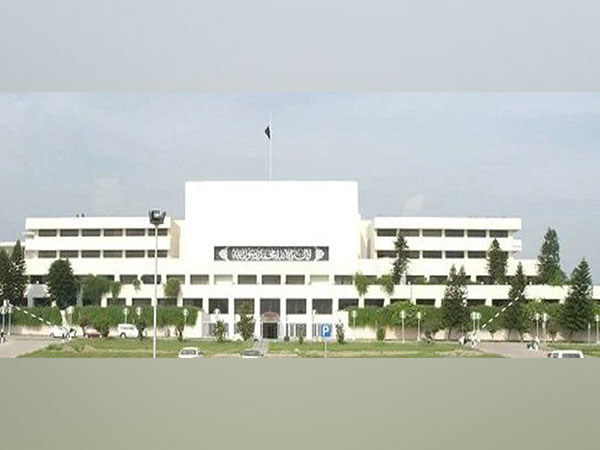Pakistan's human rights body urges action to end decades-long pattern of enforced disappearances in Balochistan
Human Rights Commission of Pakistan (HRCP) chairman Asad Iqbal Butt demanded an end to the decades-old problem of forced disappearances and extrajudicial killings in Balochistan province.

- Country:
- Pakistan
Human Rights Commission of Pakistan (HRCP) chairman Asad Iqbal Butt demanded an end to the decades-old problem of forced disappearances and extrajudicial killings in Balochistan province. He stressed that the intolerance in Balochistan has been constantly increasing in society, with minorities facing problems getting jobs and their places of worship facing threats and attacks.
Several academicians from Pakistan participated in a seminar that addressed the situation of human rights, rapidly growing intolerance and extremism in Balochistan. The seminar also highlighted the issue of deteriorating freedom of the press in Pakistan, Dawn reported.
They further expressed concern over the security situation in Balochistan, emphasising that enforced disappearances have become very common but no one is doing anything to address the worsening crisis. According to the report, the Shaheed Zulfikar Ali Bhutto Institute of Science and Technology organised the seminar.
HRCP chairman Butt further stated that people often took the law into their hands and kill anyone by charging him or her with blasphemy but the state appeared 'helpless' and unable to do anything. "This behaviour of the state encourages the elements involved in such crimes," he said.
He was of the view that one of the main reasons behind interlace and extremism in Pakistan was the All India Muslims League's narrative of religion when it was fighting for independence. The same report also mentioned that the HRCP also believed that declaring Pakistan an Islamic State meant that other than Muslims, other religions had either no or an inferior place in Pakistan.
According to Dawn, Butt also raised the issue of Balochistan and said that the people in that people of Balochistan are being picked up by the Law enforcement agencies. He said the state complained that the people of Balochistan did not trust it. "Why would they trust the state when the state itself has done things to lose their trust," he asked. Further, Butt also gave the example and said, "Recently, many Baloch women came to Islamabad to protest because they believed in the Constitution but they [state authorities] did not talk to them. Rather, they did things to disturb them and force them to end their protest."
And when anyone returned after 'disappearance', the courts never asked where that person had been and never charged those who were responsible for the violation of human rights, he added. Dr Riaz Sheikh, the dean of the Szabist's social sciences faculty of the institute, also spoke on the issues facing the Balochistan province.
While referring to the issues, Sheikh said, "The state is supposed to guarantee the lives and safety of people, but in this country, the state itself is involved in the disappearance of people." Tauseef Ahmed Khan spoke about media freedom in Pakistan and its issues.
He also mentioned that the narrative of the media has been controlled for the past many years. Article 19 of the Constitution guarantees freedom of speech but it was changed and the judiciary, armed forces and other departments were exempted from it. So you cannot speak against them, he added.
He said the media in the country had not been free in the past and was not even free at present. Some restrictions were imposed on the media in the past and still continue to be in practice. "For instance, whatever happens in Balochistan, the media cannot speak on it."
Referring to the violation of basic human rights, particularly in Sindh, journalist and human rights activist Husain Naqi said he had been in Karachi for the last around four weeks and so many people had been killed in that time. He said that there had been dozens of cases of not only girls but even babies being raped in the province.
He also highlighted that the acts of enforced disappearances must be stopped or the voices must be raised against the lawmakers of Pakistan. (ANI)
(This story has not been edited by Devdiscourse staff and is auto-generated from a syndicated feed.)
ALSO READ
NSUI protests closure of place where Muslims offered namaz in Lucknow University
Supreme Court Evaluates OBC Quota for Pasmanda Muslims
Jos Buttler Backed to Shine Despite Slump: England's T20 World Cup Journey
IUML Demands Enhanced Representation for Muslims in Upcoming Polls
Political Melody: Tejashwi Yadav's Rebuttal to Maithili Thakur










